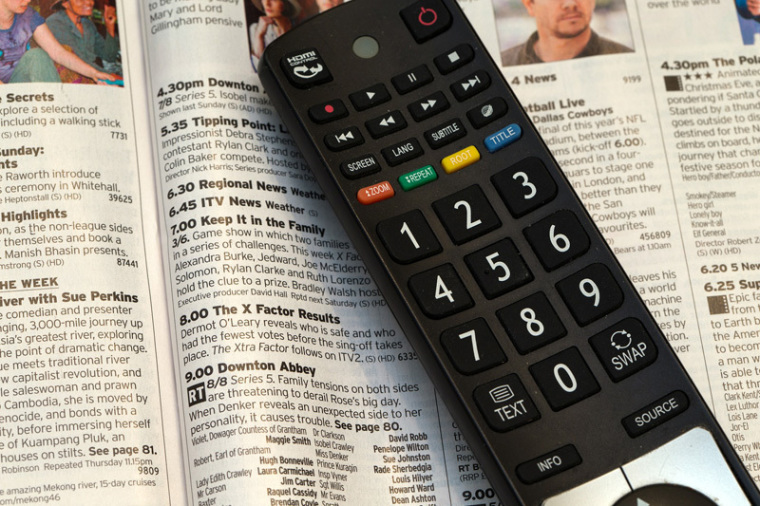
The USA has long fascinated me, and this series looks at themes in the culture in the USA, using a particular American film or series as a prompt.
Reality style TV has almost as long a history as television itself, with early show focussing on games, sporting adventures, candid camera type formats, talent, and musical shows. There were more serious exploratory series like Seven Up! (1964), and An American Family (1973) but these shows had a traditional documentary style, rather than the contemporary reality TV style.
It is worth noting that in the realm of contemporary reality TV Australia may have been a little ahead of most of the world. The somewhat intriguing reality ABC and BBC co-production Sylvania Waters aired in 1992, introducing a generation to the Baker and Donaher family.
The USA was the country to take reality TV shows to a new height, whether it borrowed a particular format from other countries or created an indigenous product, the time seemed ripe for a connecting people to people in seemingly real challenges, contests of every conceivable variety, and glimpse of the famous and those who would become famous for 15 minutes.
Part of the groundwork for this development had been laid by USA talk shows. Donahue (1967 local and 1970-1996 national), and Oprah (1986-2011). These shows moved from the traditional interview base to a more intimate and revealing celebrity-based format.
New reality TV shows focussed on the lives of the people, for example, in a talent quest, rather than the performances in the talent quest. A depth of drama (probably a good deal scripted) was introduced to connect people and make the personal dimension intimate to the point of voyeurism. Bigger budgets became available, with multiple camera operations to capture all the moments of multiple characters, and often audience connection through feedback and voting.
Some key reality TV shows that started the new generation:
Survivor (2000), (this was the broader name chosen after the earlier Swedish production Expedition Robinson), Big Brother (2000), The Amazing Race (2001), American Idol (2002),
Eventually these shows and others, like Dancing with the Stars, connected the theme of celebrity, partly to maintain ratings through celebrity series or episodes, but also because everyone on TV had to be promoted as a celebrity, because the alternate was to be no-one.
Reality TV/web shows are here to stay, partly because they can be relatively cheap for commercial stations to produce, but now with phones that can broadcast TV quality material, anyone can be a star and producer of their own show.
Reality TV and American Presidents
It is worth considering that the celebrity and reality TV context combined with the 2016 election of the 45th President of the USA, with the Democrats ironically to blame for the creation of a context for Donald Trump’s rise. The political left, particularly the Hollywood left, had created their own brand of celebrity President with Bill Clinton, and later Barack Obama. The development of reality TV formats with American celebrities, Hollywood, and YouTube stars at the centre meant that personality driven roles became the norm. Add in social media, stir well, and a perfect recipe was created to make reality TV become real life. Donald Trump’s time had arrived.
A larger-than-life figure, Trump even had had his own reality TV show series, The Apprentice (2004) and The Celebrity Apprentice, and now had the opportunity to lead a 24-hour show ‘The American President’.
It was intriguing to watch the reactions of even some Australians to Trump’s election, particularly those in the more left-wing inner-city suburbs. Shock for many soon gave way to vitriolic anger, but there was little reflection on their naïve belief that he was not electable because they could not conceive it occurring, nor a serious consideration of the reasons why people voted for Trump.
I will comment more in future articles, but when people stated that Trump’s election was impossible, I thought it illustrated their lack of understanding of the overall influence of a media-saturated culture and its impact on some significant and increasingly polarising themes in American life. I recognise there were many reasons why a large number of Americans supported Trump and Republicanism in general, including a view about freedom, individualism and entrepreneurship, a general distrust of bureaucratic government and governmental influence and a reaction to the challenges and changes happening to a traditional understanding of reality and identity.
Judging Reality TV?
This all leads to a fundamental question, is reality TV real? Well, no, as many are scripted in various ways, or developed to enable characters to play certain roles to ensure the ‘right’ ending or arrangement. Editing covers a multitude of ‘sins’ in these contexts.
These shows have also increased a culture of judgement. They are predicated on the need to judge, whether it is about what people say, how they look, sing, dance, or even the dessert they failed to make. We have all become judges at a time when our countries have increasingly forgotten who is the only one who can really judge. The verse in Judges comes to mind: In those days Israel had no king; everyone did as they saw fit. (21:25)
One of the most masterly explorations and critique of reality TV was the film The Truman Show (1998), with Jim Carrey providing a deeply connecting performance as the unaware only ‘real character’ in Seahaven Island.
Here the producer ‘Christof’ was a God-like figure, but in the end, he proved to be simply unable to control his creation. In his arrogance Christof told Truman "I know you better than you know yourself." And in a great come-back line, Truman said "You never had a camera in my head!" This is the danger of any human made product, over-estimation of what we can do and a lack of awareness that real judgement can be just around the corner.
Christians should be blessed to know that God has provided the real reality show. Our lives given to us by God as real lives to live. We are not created to be voyeurs, and but to be worshippers of the true God, and to live in community with God’s people and in God’s world as followers of Christ.
Or to use the context of another era (and my apologies to the writer of Ecclesiastes 12: 12-14)
Viewers do not be taken in by all that is on offer. Of the making of reality TV shows there is no end, and much viewing brings a numbness to real life. There will, however, be an end to reality TV and you will find out that the main purpose in life was to give glory to the creator rather than the creature. Make no mistake, you could be truly fired, for God will show everything you have ever done.

Peter Bentley is a Sydney (Australia) based writer and commentator on church, media and cultural issues. He is a former President of the Australasian Religious Press Association.